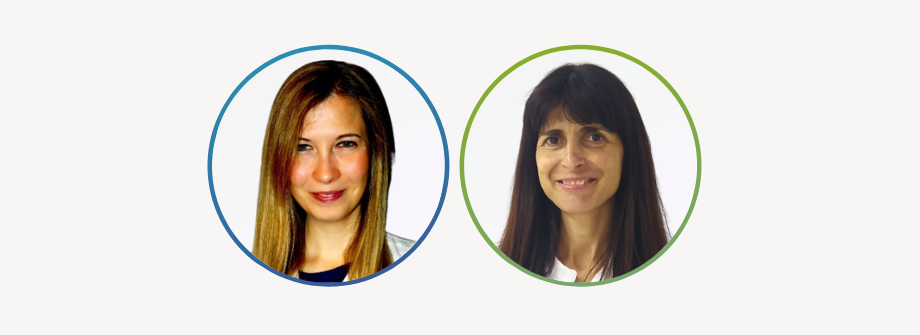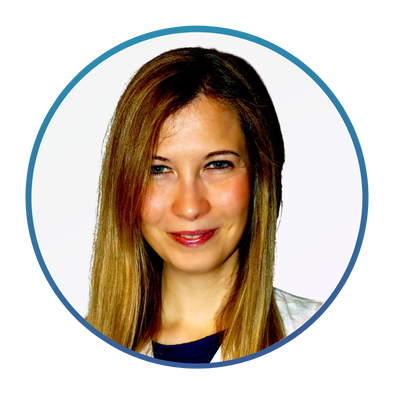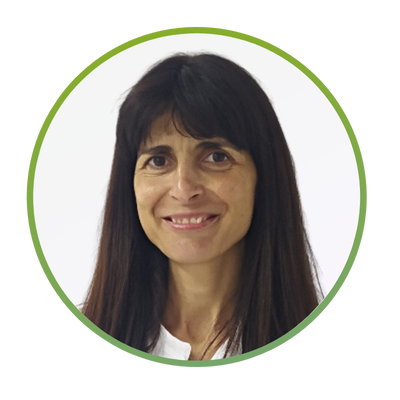

Questions to Raffaella Greco
- Introduce yourself and your role(s) and position(s) within EBMT and outside of EBMT
I am a senior Haematologist in the Blood and Marrow Transplant (BMT) Unit at the IRCCS San Raffaele Hospital in Milan, Italy. I am involved in haematopoietic stem cell transplantation (HSCT) and cellular therapies in all spectrum of haematological cancers and non-malignant indications, including autoimmune diseases. My expertise encompasses allogeneic and autologous stem cell transplantation for malignant and non-malignant diseases, cellular therapies, immune reconstitution, biomarkers, transplant complications (i.e. graft versus host disease and infections).
I am currently involved with EBMT as the Autoimmune Diseases Working Party (ADWP) Chair, Scientific Council Representative with the Education Portfolio and I am an active member of the Cellular Therapy & Immunobiology Working Party (CTIWP).
- What are the main activities - in terms of research and education - that your Working Party has been leading? And is there a memorable project that you would like to highlight?
Autoimmune diseases (ADs) are a major cause of morbidity; their incidence and prevalence continue to rise.
The EBMT ADWP is dedicated to promoting clinical activities, teaching and translational research on autologous/allogeneic HSCT together with novel forms of cellular therapy (i.e. CART cells, mesenchymal cells and Treg based approaches) as a specific treatment of patients with severe ADs, in a specific challenge to induce tolerance and resetting the immune response through eradication of the pathologic immunologic memory.
Major efforts are dedicated to comparing HSCT and cellular therapies with standard immunosuppressive treatments, by promoting analysis under the EBMT, refining conditioning regimens and patient selection, developing guidelines and recommendations plus fostering excellent science and knowledge.
- And are you facing any challenges or trends within your field that are affecting any current/on-going projects within your Working Party?
HSCT for ADs is recently facing a unique developmental phase across EBMT transplant centres. Multiple sclerosis (MS) and systemic sclerosis (SSc) cover around 80% of transplants performed for ADs, where autologous HSCT has become an integral and standard-of-care part of treatment algorithms.
Recently, novel cellular therapies (i.e. CART cells, mesenchymal cells) have been successfully adopted as therapeutic option for severe ADs.
The future of HSCT and cellular therapies in ADs depends on the dynamic with alternative treatment options, including new biological agents.
- What are your main goals in the near future?
The collaboration and the connection of haematologists with other specialists and their respective societies will continue to be fostered, as well as public health commissioners, to define the place in therapy of HSCT and cellular therapies in relation to other immunosuppressive treatments.
Moreover, novel cellular therapies (i.e. mesenchymal cells and CART cells) are progressively implemented in the field of ADs, through collaborations with other EBMT groups and other societies involved in the field.
- Can you tell us what membership of your Working Party looks like? What do members of your Working Party get to do?
The ADWP brings together most of the world’s leading experts, actively contributing to the evidence base and professional guidelines in the field of HSCT and cellular therapies for ADs, together with nurses, trainees, researchers and all professionals working in the field, in a multidisciplinary framework. EBMT Working Party members actively contribute to studies, research activities, guidelines/recommendations, publications and educational events.
- What would you like to say to encourage young investigators / trainees to join your Working Party?
In keeping with the scientific and educational scope of the EBMT ADWP, we encourage junior investigators to join our group and actively participate in our activities.
We are looking forward to welcome you to the EBMT Autoimmune Diseases Working Party (ADWP) and our educational events. Visit our webpage on the EBMT website and/or contact us here.
 Questions to Ariadna Domènech
Questions to Ariadna Domènech
- Introduce yourself and your role(s) and position(s) within EBMT and outside of EBMT
My name is Ariadna Domènech and I am the Head Nurse of the Haematology and Oncology Department at the Hospital Clinic in Barcelona and, since July 2021, the representative nurse in the EBMT Autoimmune Diseases Working Party.
- What are the main activities - in terms of research and education - that your Working Party has been leading? And is there a memorable project that you would like to highlight?
In terms of education, I think that the participation of nurses in the annual educational meeting and research activities of the EBMT ADWP is fundamental for us. Recent educational EBMT Working Party meetings have included a parallel session for nurses and a joint session where nurses, physicians, trainees and patients are involved.
Regarding research I would like to highlight those research projects in which the implication and point of view of the nurse have been needed, such as the publication of the position statement concerning general information for patients and caregivers considering HSCT for severe autoimmune diseases (AD), and the survey conducted among national groups to obtain data on the access and reimbursement of HSCT for AD.
- And are you facing any challenges or trends within your field that are affecting any current/on-going projects within your Working Party?
One of the challenges we currently have is being able to involve more nurses willing to participate in new projects within the EBMT ADWP. I think that health professionals have lived through a difficult period in which part of the research/training activity was sidelined due to the pandemic, but now we have the opportunity to bring back face-to-face events and focus on new projects.
4. What are your main goals in the near future?
The main objective we would like to develop in the coming months is a manuscript in which we will address the specific nutritional aspects to be considered in patients with autoimmune diseases who undergo an HSCT. This publication will be the first step in a more ambitious project of the EBMT ADWP concerning the care of these patients during the HSCT process from the nurses' perspective.
5. Can you tell us what membership of your Working Party looks like? What do members of your Working Party get to do?
Being the Nurse Representative in the EBMT ADWP has allowed me to participate in the preparation of the scientific programme for their annual educational meeting and organise the parallel session for nurses, which I think is an enriching professional experience. At the same time, membership in the EBMT ADWP provides me with the opportunity to participate in multi-centre research projects with the ultimate goal of improving patient care which I greatly value.
6. What would you like to say to encourage young investigators / trainees to join your Working Party?
Being a member of the EBMT ADWP provides knowledge in a specific area of HSCT and the opportunity to interact with experts with extensive professional experience. In my opinion, it is one of the most multi-disciplinary Working Parties inside EBMT since it includes physicians from other specialties (i.e. neurologists, rheumatologists, gastroenterologists, etc.). The EBMT ADWP also favours establishing ties with professionals from other centres and sharing experiences and knowledge as well as the possibility of participating in relevant projects. For more information, visit our webpage on the EBMT website and/or contact us here.